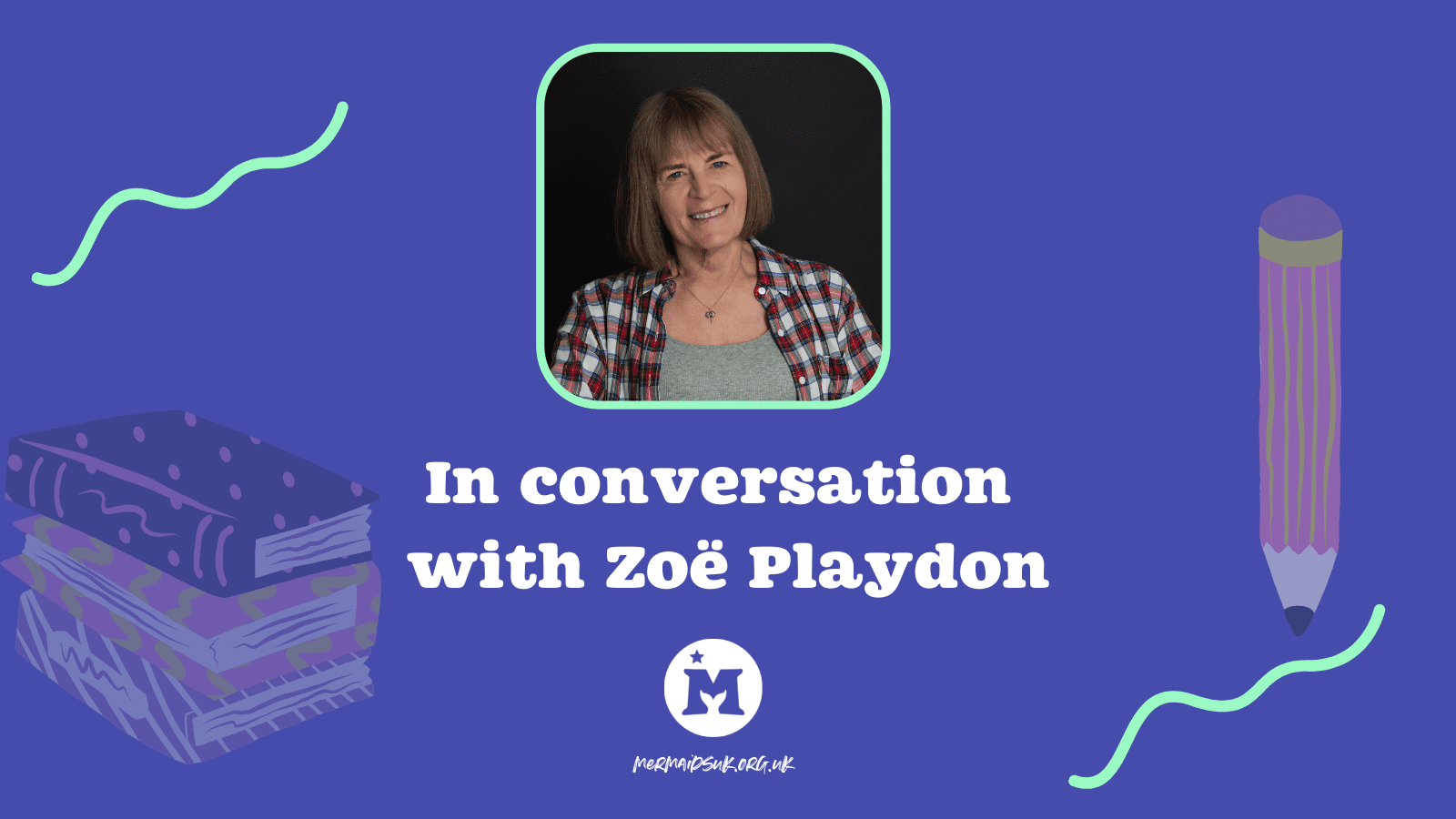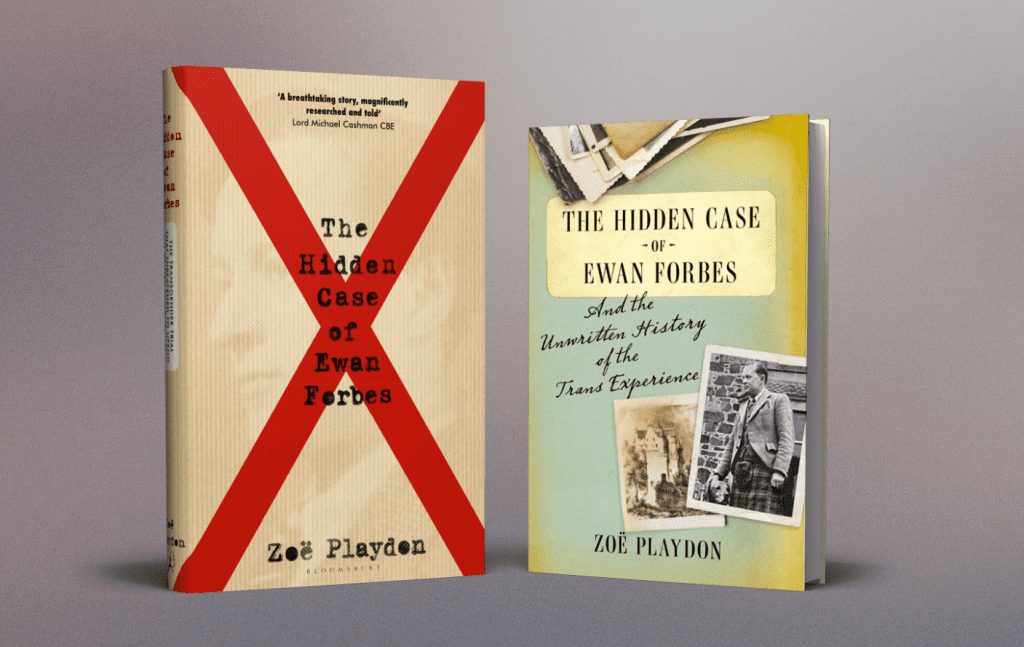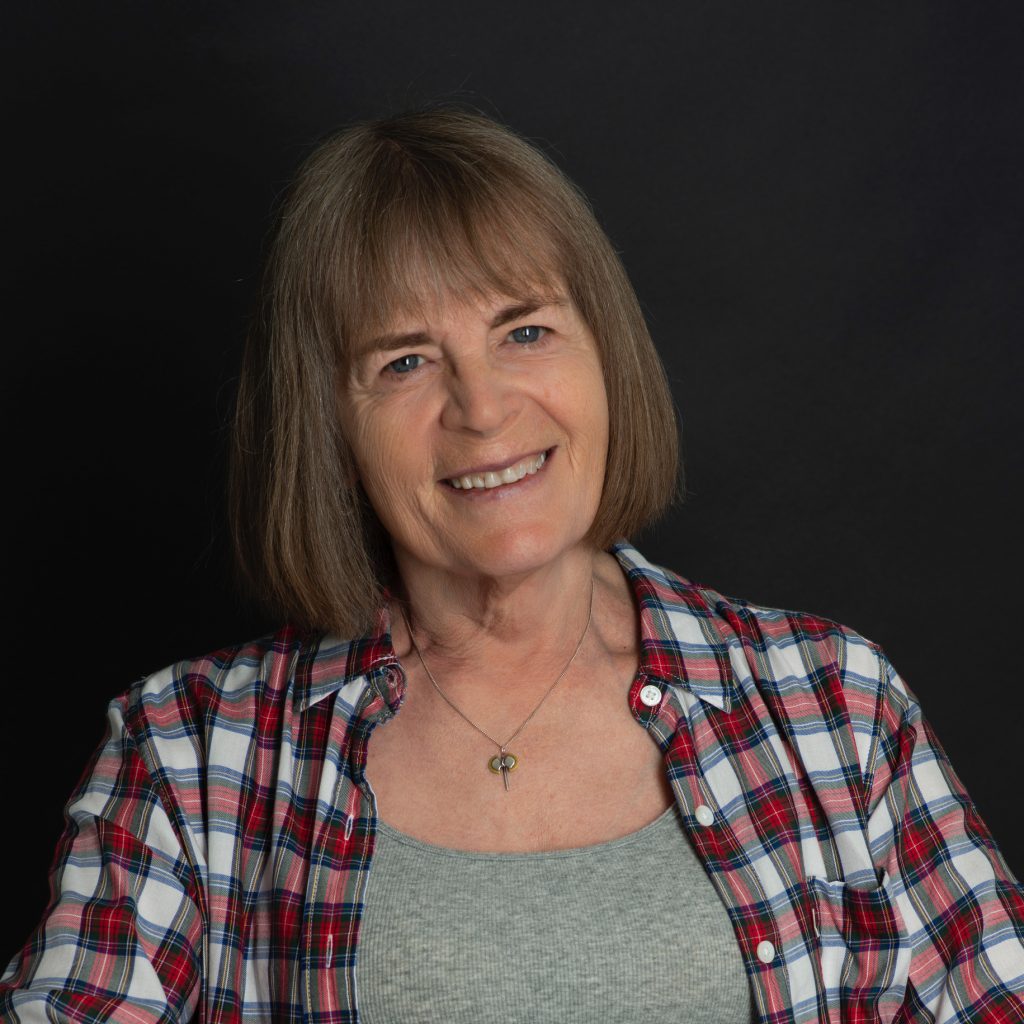
To mark LGBT History Month, author and academic Zoë Playdon talks to Mermaids about her book, The Hidden Case Of Ewan Forbes, and Ewan’s impact on the lives of trans people today
Interview by Carrie Lyell
Described by The Bookseller as “as significant to the trans experience as Oscar Wilde is to gay men”, the case of Ewan Forbes is one we should all know about. And yet many of you reading this may never have heard of him. This LGBT History Month, Zoë Playdon, author of an “enthralling and explosive” book about Ewan, tells us why.
For those who haven’t read your book, who is Ewan Forbes and why is his story important?
Born in 1912 to an aristocratic Scots family, Ewan received affirmative medical care from European doctors – he was a guinea pig for early preparations of testosterone – and avoided going through the wrong puberty.
In 1952, he corrected his birth certificate, as trans people could in those days, married, and lived happily until 1965 when a cousin challenged him for the inheritance of a male-line primogeniture baronetcy on the grounds that Ewan wasn’t “a real man”.
Although Ewan won the ensuing court case, he created a constitutional crisis, for the Crown was governed by primogeniture. If a trans man could become a baronet, he could become King, and security of succession and the political stability associated with that were threatened.
The establishment backlash from Ewan’s case removed trans people’s civil liberties, condemned them to a brutal NHS regime that included compulsory sterilisation, and exposed them to systematic abuse by the media. It precipitated a period of transphobia so extreme that it meets the formal definition of genocide.
Today, few people are aware that until the 1960s, trans people self-identified, accessed affirmative medical care, corrected their birth certificates, and lived in complete equality. Ewan’s case changed that, damaged the lives of a generation of trans people, and left an inheritance of systemic transphobia.
What first sparked your interest in this case, and in trans history more generally?
In February 1996 I was tipped off by Terrence Walton, the solicitor of the late April Ashley, that there was a hidden trans legal case. He said that everyone blamed him and April for trans people being unable to correct their birth certificates, but there was another, earlier case that had removed that right.
Before they went into court, the Judge, Lord Ormrod, had shown Terrence and April this case, told them they were not allowed to refer to it, that everyone who knew about it was sworn to secrecy, which now included them, and that all records of it had been removed from the public eye because “There are some interests it is more important to protect than the rights of individuals”.
I spoke to Mark Rees and Stephen Whittle, founder and leader of the trans campaigning group Press For Change, and we felt it had to be an aristocratic trans man and a primogeniture title. Mark remembered Ewan Forbes, Stephen faxed me Ewan’s obituary, and I began to look for his case, initially to eliminate it as a possibility.
Ewan’s case… damaged the lives of a generation of trans people and left an inheritance of systemic transphobia”
But wherever I looked, Ewan wasn’t there: not in the University of London Law Library, nor the Signet Library in Edinburgh, or the Scottish Public Records Office. He just didn’t appear in any of the indexes, files, or catalogues where he should have been.
I telephoned the Advocate General (head of law in Scotland) and the Rolls of the Baronetcy: they told me to write and didn’t answer my letters. Dr Lynne Jones MP, my co-founder of the Parliamentary Forum on Gender Identity, wrote to the Advocate General and he replied saying he knew the case but would not tell her anything about it.
In the end it took two years and the direct intervention of the Home Secretary for the hidden case of Ewan Forbes to be revealed.
You started looking into Ewan’s story 26 years ago. Did you have any idea then that it would become a book?
No, I had no idea at all. I only glanced at the case papers when they finally arrived, because in May 1996 our legal team won a landmark case in the European Court of Justice – P v S and Cornwall County Council – which rewrote human rights law internationally and restored employment rights to trans people.
It was then a very active time, supporting government departments to improve trans people’s experiences of education, prisons, and healthcare, and trying to moderate some of the worst elements of the Gender Recognition Act 2004. Apart from having it at the back of my mind that primogeniture played a part in trans exclusion, I didn’t think about Ewan until 2014.

I’d wrongly assumed that the primogeniture issue was over when the Succession to the Crown Act 2013 removed it from the monarchy and expected trans equality automatically to improve. But it didn’t, and I began to wonder just what had happened in Ewan’s case.
I dug the papers out, subjected them to a forensic analysis, worked backwards to see what had led to Ewan’s case and then forwards to trace its consequences. I was very shocked by what I found and felt it was crucial that this history should be known.
Your book has been very well received. But how did you feel about the Guardian’s criticism of using the term “TERF” and The Times dismissing it as a “campaigner’s book”?
It’s always hard to know how far reviewers have read the material they’re reviewing, and in the book I do explain at some length why I have used the term “terf” (in lower case specifically to avoid the negative connotations sometimes associated with capitalisation).
It is a sociological term, coined in 2008 to distinguish a splinter group opposing trans equality, from mainstream radical feminism which has a trans-affirmative history. I also describe its origins, in a 1970s Stepford Wives conspiracy theory that male doctors were replacing “real women” with “artificial women”, and more recently in Creationist ideology which sees trans people as contrary to God’s will.
Coherent terminology is important when you’re writing history, especially tracing a consistent ideology that renames itself, so I use “terf” to maintain academic continuity.
I feel that it is quite wrong to use the term as a slur: it needs to be reserved for defining groups that wish to exclude trans people from equality and justify their views by appealing to a version of radical feminism based on conspiracy theory or creationist ideology.

The Times review was really rather odd: it said reading my description of Highland dancing (one sentence on page 39 of the book) was “an ordeal”, and called intersex conditions “dubious science” and me a “cursed genius”. So it was difficult to take it seriously, complimentary though it was in other ways.
As I teach my students, history is not a neutral pursuit. It always provides a critical perspective, reflecting the standpoint of its writer, which in my case is a commitment to human rights.
Like Ewan’s, so many LGBTQIA+ histories have been hidden, erased, or were never recorded in the first place. What impact does that have on our present?
The most immediately damaging effect, I think, is that it has enabled almost two years of moral panic about trans equality. It’s difficult not to associate this with Boris Johnson’s actions – shelving Theresa May’s LGBT Action Plan, side-lining GRA reform, delaying action on conversion practices – so that it seems as though he is weaponising trans issues as a political diversion from the UK’s massive post-Brexit and Covid problems.
But in the larger historical span, trans erasure raises the question of whether and how we can talk about trans history, while at the same time highlighting the crucial importance of doing so. As the decolonisation project indicates, we can’t make sense of our present if we don’t understand our past, so this is not just a concern for trans communities but for everyone: none of us are equal until we are all equal.
Why do you think it’s important to tell our stories now?
Stories are such powerful things: they open audiences to imaginative sympathy and emotional engagement, to feeling for the protagonist as for themselves. And once that link has been made, there is an increased willingness to listen to the nuts and bolts of equality and support change.
But that also raises the questions of what stories should be told? Historically, the staple of trans narrative has been confessional, often presented as trans apologia, like Lili Elbe’s Man Into Woman. It is a format that has been shaped and sanctified by cis discourse, positioning trans people as supplicants, their lives ordered into a “before and after” sequence, fearful and grateful and dependent.
I think it is crucially important to find ways of breaking that mould. Roz Kaveney did it in the 1980s with Tiny Pieces Of Skull, but no-one would publish it until 2015, Paris Lees does it in What It Feels Like For A Girl, and Jordy Rosenberg in Confessions Of The Fox. I’m looking forward to stories from people who recognise that the emotions of shame and apology belong to transphobes, not trans communities.
You’ve spent 30 years campaigning for change. Do you feel a sense that we’re fighting the same battles over and over again?
Not the same battles, but certainly the same fixed ideologies, although now they operate rather differently. Twenty years ago, opposition to trans equality came from two separate directions: religious fundamentalists whose ideology positioned being trans as contrary to God’s will; and so-called terfs who positioned trans people as sexual predators, claiming their use of single sex spaces, especially bathrooms, was a threat to cis people.
It was easy to recognise that extreme religious fundamentalists operated on beliefs that they were entitled to hold but not to impose, and that Home Office inquiries could find no instance where trans use of single sex space had proved a problem.
Establishing and communicating the facts about trans experience has become much more difficult than it was 20 years ago”
Now, though, a well-funded, sophisticated anti-trans campaign has conjoined alt-right Christian evangelism with conspiracy theory and ethnonationalism, operating through social media to manufacture doubt and spread misinformation. These are the post-truth, fake news perpetrators in full swing, where any unsupported assertion, no matter how ridiculous, is repeated as “fact”. And their nonsense is spread so assertively that it may even be reported as true by respectable media outlets such as the BBC or The Times.
For example, a Twitter campaign against my book claimed that Ewan wasn’t trans, his case wasn’t hidden, and it couldn’t have been introduced to April Ashley’s hearing. All untrue, but they were so insistent they got first The Times to write an article about it – I was given an hour’s deadline to respond to the journalist’s questions – and then the Times Literary Supplement, which at least had the courtesy to publish my first reply, though not my second.
More significantly, fake news has ended up creating a culture in which great harm is done, such as the preliminary ruling in Bell v Tavistock, which removed appropriate healthcare from trans children and adolescents. This did both physical and mental harm to patients, destabilised NHS services, and was a huge cost of time and money to the public purse. Establishing and communicating the facts about trans experience has become much more difficult than it was 20 years ago.
It can be hard to be patient – especially when it feels as though you’re constantly under attack. What’s your advice for young activists?
First, never forget that for 50 years, UK trans people self-identified, accessed affirmative medical care, corrected their birth certificates and lived equally. Equality wasn’t a problem then and shouldn’t be a problem now.
Second, recall that the limited civil liberties which have been reclaimed came from legal action, political lobbying, and educating the public, and those are still the three main routes for change.
Finally, alliance is crucial. Government is currently replaying on trans communities the same approaches used to impose Section 28 on lesbians and gay men in 1988 and then, it was the trans case P v S and Cornwall County Council which enabled gay and lesbian civil liberties to be reclaimed, beginning with lifting the ban against them in the military. It is working with allies – insistently, persistently, consistently – that will make trans liberation an irresistible force.
Who are the gender diverse people, past or present, that inspire you?
I’m inspired by everyone who ever said to bullies, “No, I don’t let you do that”. That refusal, wherever and however it takes place, is a key turning point. The bullying may be personal or political, from ignorance, or unawareness, ideological belief or political expediency, or just because bullies enjoy hurting the vulnerable. And the refusal may be polite or angry, personal push-back or a major legal case, focussed on an individual or a system.
Perhaps the argument is won or perhaps it is lost but people who say “No, I don’t let you do that”, and who don’t give up saying it: they are impressive.
I think of my friend and comrade-in-arms, the late Terry Reed, who founded GIRES, and who never stopped saying “No” to bullies, right up to the end of her life. That’s inspiring.
It can be difficult to imagine a future when things feel so bleak. What are your hopes for the trans community?
Things have been much better in the past (the pre-1970 period of trans equality) and much worse (the genocide period 1970-1996) than they are now. History tells us that excluded minority communities have to fight for the restoration of equality: the people who took it aren’t going to just give it back. And that battle is fought on many fronts at the same time, and succeeds through the often unpaid work of activists and allies who support and encourage each other.
They do this because, irrespective of personal backgrounds or political allegiances, they share the same ethical principle: belief in the fundamental and inalienable values which we call social justice, human freedom, and equality.
I hope trans communities will recognise this common purpose, mobilise allies – parliamentarians, lawyers, doctors, teachers, journalists, families, friends – and never give up until the equality that was removed by Ewan’s case is restored again.
